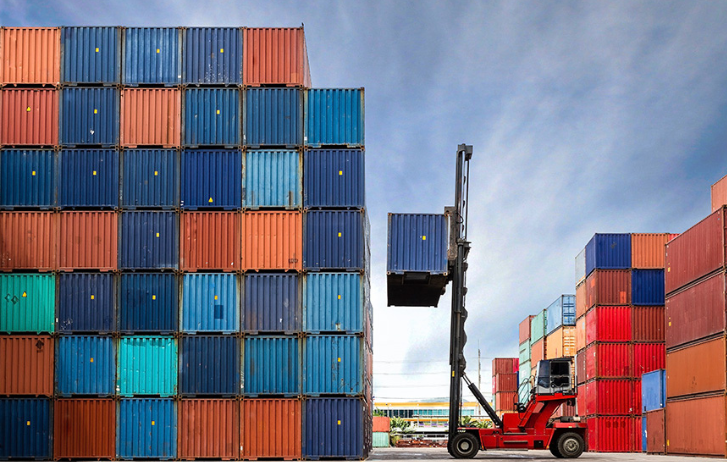
How Can Filipino SMEs Take Advantage Of The RCEP Trade Deal?
By FedEx | First published: August 12, 2022 Updated: August 27, 2025
Businesses in the Philippines can now benefit from the world’s biggest free trade agreement. How does the RCEP trade deal give Filipino SMEs a competitive edge in new markets?
- The Philippines joined the Regional Comprehensive Economic Partnership (RCEP) in 2023, opening new market opportunities for local businesses across the region.
- For local SMEs eyeing regional expansion, the RCEP enhances access to neighboring markets, eases challenges in cross-border shipping, and supports intra-Asia e-commerce.
- Backed by reliable logistics support, small businesses can count on a solid foundation to expand across borders.
Filipino SMEs might be small in size, but they’re making a big mark on the world. At FedEx, we’ve had the honor of supporting many Filipino businesses in their global journeys: from ANTHILL, a social enterprise that’s bringing traditional textiles to the world, to Aircraft City, an aircraft model maker that’s sought-after by international customers.
Now that the Philippines is part of the world’s largest free trade agreement, local SMEs are better positioned than ever to expand into international markets. The Regional Comprehensive Economic Partnership (RCEP) deepens the Philippines’ trade links with 14 key nations in Asia Pacific: Australia, Brunei, Cambodia, China, Indonesia, Japan, Laos, Malaysia, Myanmar, New Zealand, Singapore, South Korea, Thailand, and Vietnam.
Since the RCEP trade deal entered into force on 1 January 2022, businesses in participating countries have been reaping various benefits in intra-Asia trade and cross-border e-commerce. The Philippines was the last country to sign the deal, joining the partnership in June 2023 and opening a gateway to new market opportunities for SMEs.
How does the RCEP benefit businesses in the Philippines?
Small businesses going global face many hurdles: costly taxes and tariffs, confusing regulations, and supply chain issues, among others. The RCEP trade deal helps Philippine SMEs overcome these barriers to intra-Asia trade.
The RCEP offers a comprehensive set of rules that lower tariffs, harmonize trade policies, and help businesses tap into regional supply chains. This allows businesses to gain greater market access and engage in cross-border e-commerce more freely across the Asia-Pacific region.
The Philippines Department of Trade and Industry has outlined the advantages of the RCEP for businesses, dubbing the trade deal a “mega-FTA” that will promote greater openness, create a more business-friendly environment, and foster a stable and vibrant system of trade.
All of this is crucial for Filipino entrepreneurs who want to unlock new areas of growth and expand into cross-border markets. We dive into some of the key benefits of the RCEP for the Filipino economy and its SMEs here:
1. Dialing up digital trade reduces costs and increases efficiencies
The e-commerce chapter of the RCEP features initiatives that encourage SMEs to leverage opportunities in online cross-border selling. It makes e-commerce transactions easier by facilitating paperless trading, along with digital solutions such as electronic signatures and digital authentication.
Going paperless can reduce transaction costs and help SMEs create a seamless digital experience for customers – a huge factor influencing purchase decisions. Filipino SMEs who digitalize logistics and trade processes can operate more efficiently and compete more effectively on the global stage.
In addition, the RCEP includes measures to protect consumers and their personal data in e-commerce transactions. This encourages customers to shop more confidently online. That trust translates into opportunity for businesses – potentially leading to stronger cross-border sales and growth in Philippine e-commerce exports.
2. Lower tariffs open up access to new markets
RCEP member states have committed to reducing or removing customs duties imposed on goods and services by around 92% over the next 20 years.
For Filipino SMEs, this means increased opportunities to offer their products and services globally, especially in the areas of agriculture, garments, and electronics. For example, if you’re a Filipino clothing brand exporting garments to Japan, you can expect to benefit from 0% tariffs within the next 15 years. This gives you a competitive edge over non-RCEP brands.
Lower tariffs also bring significant cost savings on imports and exports. Small local enterprises can benefit from wider options for sourcing raw materials from RCEP markets and finding cheaper prices. By using these cost savings to set competitive prices, SMEs can stand out and attract customers in new markets.
3. Simplified trade rules help speed up cross-border shipping
Prior to the RCEP trade deal, customs procedures in the region were often inefficient and complicated. This resulted in customs delays that could stretch on for days. In Australia, for instance, goods requiring inspection could take up to 10 business days to clear customs.
The RCEP trade agreement establishes simplified trade rules that streamline customs processes and harmonize documentation requirements. Thanks to electronic pre-arrival processing and streamlined inspections, normal goods can now clear customs within 48 hours, while perishable goods can be released within six hours.
With faster clearance, businesses can reduce shipping delays and provide customers with quicker international deliveries. Savvy SMEs can also use digital tools to make the clearance process smoother. For example, FedEx Electronic Trade Documents allows you to submit trade documents digitally, helping speed up customs clearance and reduce errors.



4. Richer investment opportunities can drive business innovation
The RCEP facilitates investment flows and seeks to create a stable, transparent investment environment in the region. Its rules and regulations for investment protection give potential foreign investors greater confidence to establish ventures in the Philippines.
Increased capital from foreign direct investment can drive economic growth, create new job opportunities, and finance advanced infrastructure. While this may increase competition for small businesses, it also allows local SMEs to benefit from the spillover of knowledge and technology from foreign firms.
By adopting digital know-how and best practices from foreign firms, Filipino SMEs will emerge well-equipped to innovate and compete on a global scale.
Fueling growth opportunities for Filipino SMEs
Through the RCEP trade deal, the Philippines is now part of a formidable economic bloc with the power to reshape the region’s business landscape. SMEs that take full advantage of the RCEP’s benefits will be in a strong position to succeed.
As your business grows, reliable logistics support can help you unlock new markets and manage cross-border shipping at scale. At FedEx, we empower small businesses to expand internationally with innovative logistics solutions. Digital tools like FedEx Ship Manager streamline shipment creation and support electronic document submissions through the FedEx Electronic Trade Documents feature, enabling fast and easy customs clearance for your e-commerce exports.
If you’re thinking about expanding your business, now’s the time to take that step. With more open intra-Asia trade policies in the region and the right logistics support, small businesses can confidently reach new regional and global markets.
SHARE THIS STORY
- 85% Of APAC Businesses Plan To Expand Into Europe, According To New FedEx Report
- Generative AI: A New Frontier
- How To Ship A Giant Panda
- The Rise Of Intra-Asia Trade: Opportunities In The China-Southeast Asia Corridor
- Where Do Old Planes Go When They Retire?
- What’s So Dangerous About Coconuts? Your Guide To Dangerous Goods Logistics
Sign up now and save on your shipping rates!
Sign up now and earn discounts by shipping instantly with FedEx Ship ManagerTM at fedex.com.
Recommended For You

Is The RCEP Trade Deal A Springboard For Cross-Border Trade in APAC?
Is the Regional Comprehensive Economic Partnership driving growth in Asia and beyond? Importers and exporters in APAC are exploring ways to benefit.
Read More
Triloueva: A Filipino Footwear Brand For Eco-Conscious Customers
Unable to find footwear she liked, Filipino SME Trina Evangelista launched a family-run e-commerce brand selling locally-made shoes to customers.
Read More
How The RCEP Trade Agreement Drives Growth For Vietnam’s SMEs
The Regional Comprehensive Economic Partnership (RCEP) is lowering barriers to global trade for Vietnam’s SMEs. Here’s how your business can benefit.
Read More

